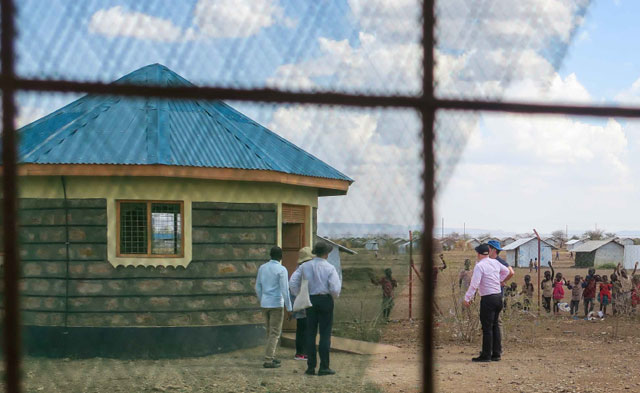LGBTQ+ Asylum Seekers in Kenya Face Growing Uncertainty as Refugee Commissioner Rejects Special Protections
LGBTQ+ asylum seekers in Kenya are facing heightened anxiety after John Burugu, the official in charge of processing asylum applications, stated that sexual minorities would not receive special treatment. Burugu’s remarks have cast doubts on the future of many LGBTQ+ individuals fleeing persecution in neighboring countries, especially Uganda.
Kenya hosts over 770,000 refugees, according to the United Nations High Commissioner for Refugees (UNHCR). More than a quarter of these are still awaiting the determination of their asylum status, though the exact number of LGBTQ+ asylum seekers remains unclear. In 2021, the UNHCR estimated there were about 1,000 LGBTQ+ refugees in Kenya, a number likely to have increased after Uganda passed the Anti-Homosexuality Act in 2023, imposing harsh penalties on LGBTQ+ individuals.
Despite growing concerns, Burugu, Kenya’s refugee commissioner, emphasized that the country would not grant asylum based solely on sexual orientation or gender identity. “We are not interested in anyone’s sexual identity,” Burugu said in a September interview. “That is their business, but it will not be a measure of convincing us to admit someone who fails to meet the threshold of being admitted as a refugee or asylum seeker.”
While Kenya’s 2021 Refugees Act does not explicitly protect LGBTQ+ individuals, it does recognize refugees fleeing persecution due to race, religion, nationality, political opinion, or membership of a social group. Despite this legal framework, LGBTQ+ asylum seekers report delays in their applications, which the UNHCR has urged Kenya’s Department of Refugee Services (DRS) to address.
UNHCR spokesperson Kathryn Porteous noted that LGBTQ+ refugees are “normally recognized” by the Kenyan government. However, since 2021, applications by LGBTQ+ asylum seekers have stalled, with many left in limbo. “UNHCR continues to advocate with DRS to resolve the pending case load and to ensure access to asylum for LGBTIQ+ refugees in Kenya,” Porteous said.
LGBTQ+ asylum seekers like Sulah, a 30-year-old Ugandan refugee, have experienced years of uncertainty. Fleeing death threats in Uganda in 2016, Sulah has waited three years for his refugee status to be determined in Kenya. He remains frustrated with the lack of progress, fearing his case is being pushed to the bottom of the queue.
Emmalia, a transgender activist who escaped Uganda after her home was attacked in 2023, also feels trapped in Kenya without the necessary documentation to move forward. “I cannot go back to Uganda because of security reasons, while at the same time, I cannot move out of Kenya since I don’t have the requisite papers,” she said.
Human rights lawyer Kevin Muiruri argues that Kenya’s constitution, which prohibits discrimination based on sex and gender, should guide how LGBTQ+ asylum seekers are treated. “The Bill of Rights prohibits discrimination on grounds of sex and gender, and this same principle should apply to queer people,” Muiruri said. “A refugee is a refugee.”
As LGBTQ+ Ugandans continue to seek refuge in Kenya from the draconian anti-LGBTQ+ laws, the delays and uncertain future of their asylum applications are leaving many in a vulnerable state, fearful for their safety and future in the region.
Related

Comments are closed.